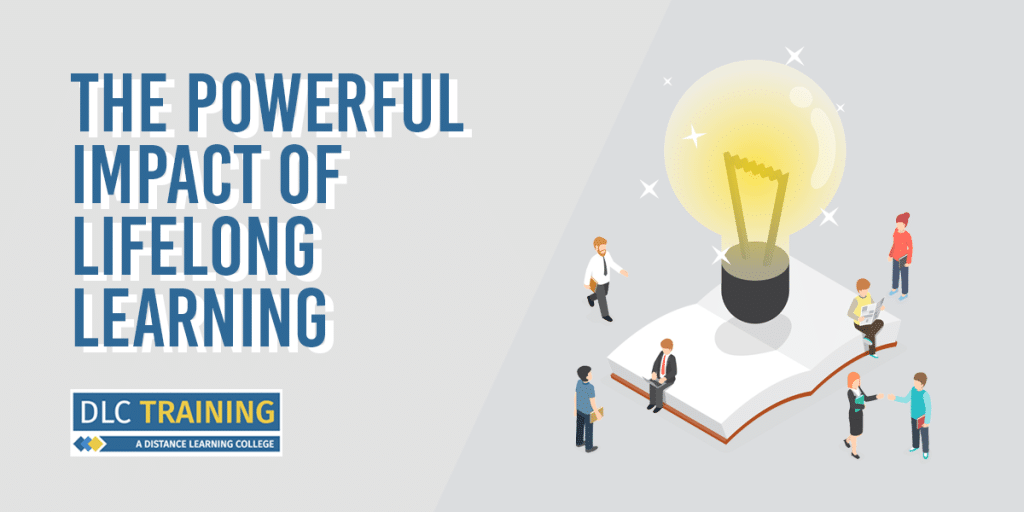When it comes to personal and professional development, many people are eager to make progress, but figuring out where to begin can be challenging. One of the most effective strategies is to prioritise lifelong learning – but what does that really mean? Continue reading to find out more about lifelong learning and how it can positively transform your life.

What is Lifelong Learning?
Lifelong learning refers to the ongoing, self-motivated pursuit of knowledge throughout a person’s life. This is different to formal education, as it is voluntary, you can engage in it as often or as little as you like.
Lifelong learning is usually driven by curiosity and personal interest. It’s also important to note that it could involve learning about anything, not just topics that are useful for your work. For example, a finance manager in their 50s has always loved music could decide to take up piano. Taking up piano is a learning experience, as it involves understanding musical theory and learning new motor skills. This isn’t something that the individual does to excel in their work, but they are driven by personal passion.
On the other hand, the finance manager, who has spent their entire career working in finance, has heard about a new accounting software that has a lot of new features compared to their current software. The new software sounds appealing to the finance manager as it could save them a lot of time with certain tasks, so they take a course that helps them learn how to use it.
Both examples are considered lifelong learning. Although one type directly impacts an individual’s career, the other type of learning is equally important from a benefits perspective.
The Benefits of Lifelong Learning
As touched on above, there are many benefits to engaging in lifelong learning. This includes:
- Personal growth and development
- Career advancement
- Mental and emotional wellbeing
- Social connections
- Long term fulfilment
Personal growth and development
When you engage in lifelong learning, you are gaining new skills and knowledge. This can help broaden your understanding of the world and expose you to new ideas and perspectives. This can in turn boost your self-confidence.
Career advancement
New interests can lead to the acquisition of skills that are valuable in your career. Going back to the finance manager who learns about the most up to date accounting software, they make their role more efficient while also making themselves more employable to other employers who require a professional who is proficient in that specific software.
Interestingly, research by the Organisation for Economic Cooperation and Development (OECD) has shown that individuals who engage in lifelong learning are 2.5 times more likely to be employed. They are also more likely to earn higher wages and enjoy better job security. This reinforces the idea that lifelong learning is beneficial for your long-term career advancement.
Mental and emotional wellbeing
The process of learning keeps your brain active. In the case of the finance manager learning to play piano, they will go through the process of learning to play which will consist of learning the layout of the piano, the chords, and eventually playing a tune. As they go through this process, they will improve their concentration levels, memory, and cognitive abilities. Although playing piano is a creative outlet for the finance manager, it will significantly contribute to their mental sharpness.
As well as keeping mentally sharp, pursuing a passion project brings joy and satisfaction, which can contribute to a more positive outlook on life. As the finance manager gets better at playing, they will start to feel a sense of achievement, which is excellent for improving mental wellbeing.
Social connections
Exploring something new often leads to meeting new people who share similar passions and interests. This can help you to build a network of friends or professional contacts. As you engage with new people, you’re also likely to improve your communication skills as you begin to interact with a more diverse range of people.
Long term fulfilment
Exploring new interests helps to keep you intellectually engaged and encourages further curiosity and development. This can lead to pursuing more passions and interests, giving you a deeper sense of purpose and direction.
Lifelong learning is more than just a concept; it’s a way of life that empowers individuals to grow continuously, both personally and professionally. By embracing lifelong learning, you can unlock new opportunities, stay competitive in the workforce, and enrich your life in countless ways. In a world that never stops evolving, neither should we. Make learning a lifelong habit, and the benefits will follow.